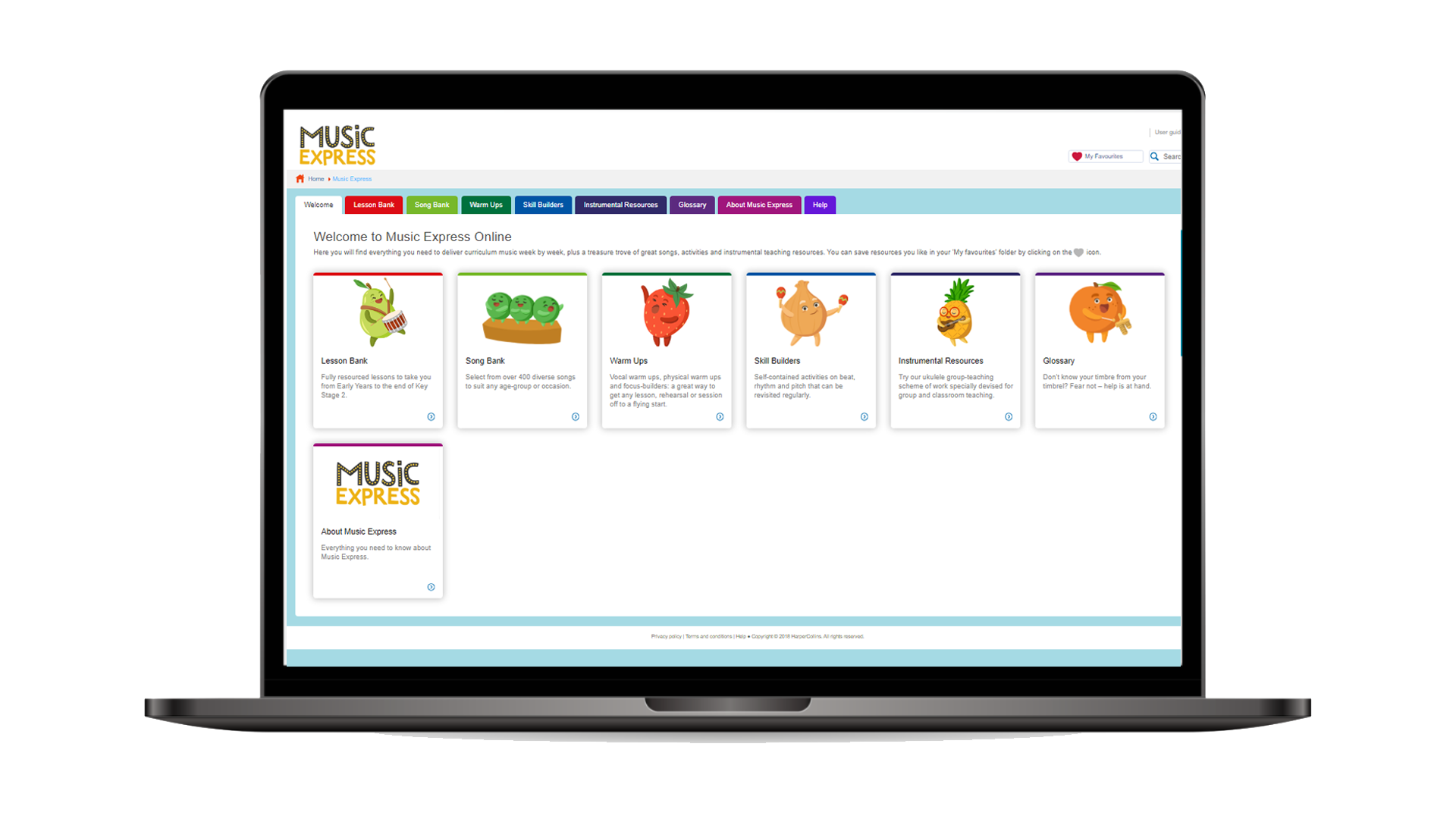Do you want some lively key stage 2 music lesson ideas for your home-schooling timetable? Would you like fun activities which can be used at any time of the day to engage and refresh your child? Would you like to develop all-round skills which help enhance learning across other subjects?
Did you know?
Regular music-making provides many well-documented benefits for children (and adults!), including improvements in:
- concentration
- listening and sound discrimination skills
- aural memory
- physical co-ordination
- self-confidence
- and, very importantly, enjoyment, leading to mental well-being.
These activities are taken from Music Express, an award-winning educational resource used by thousands of EYFS practitioners and primary school teachers to deliver classroom music.
Music Express is currently available to access for free while schools are closed. Free access for parents can be obtained by visiting our learn at home page and using the login details provided. To set up free access for your school, or if you are an independent music educator, visit our teacher support page.
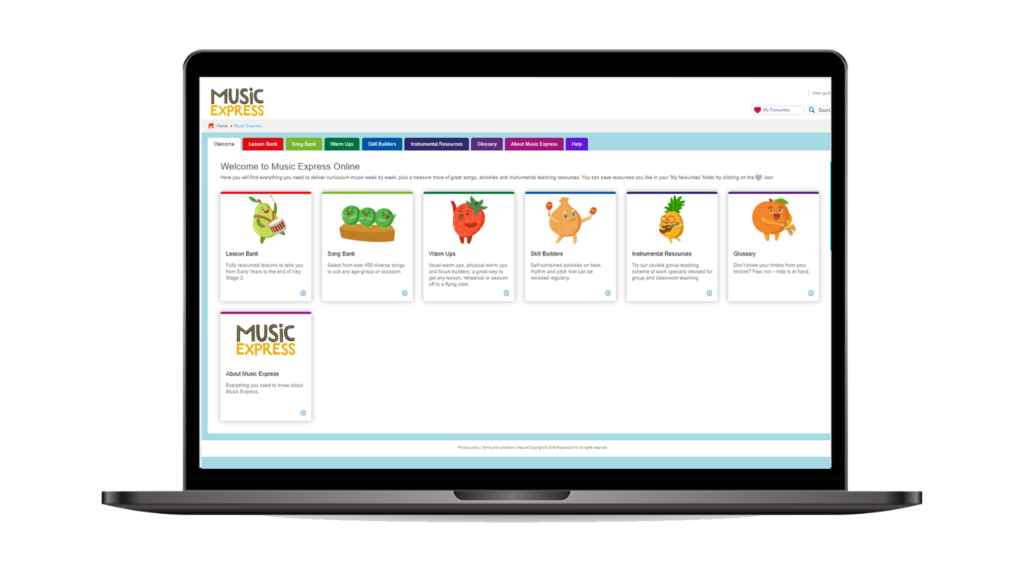
Year 3 (ages 7-8)
Emoticon song
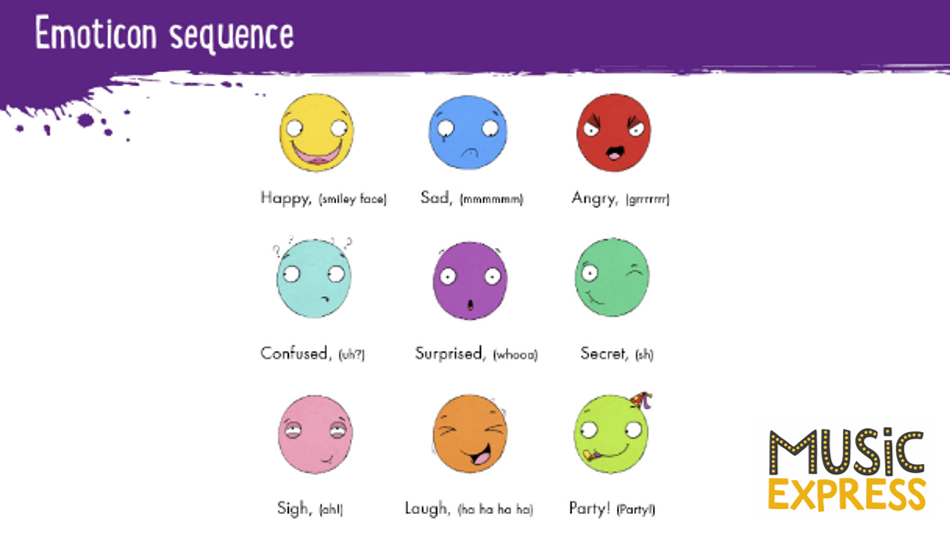
Learn a song about communication with expressive sounds and actions
- Look at the Emoticon sequence display as you listen to the song. Talk about how emoticons (smileys) are used, then practise the sequence of actions or facial expressions to go with each of the word sounds, e.g.
Happy – smiley face
Sad – mmmmmm
Angry – grrrrrrr
Confused – uh? - Look at the Emoticon song lyrics display to learn the song all the way through.
What next?
- Use your phone or computer to help your child select nine emoticons to create a new sequence for the middle section of the song, e.g. tired, grumpy, shy, strong… don’t forget to add facial expressions or actions, too!
- Send an email to yourself with the new list of emoticons to use as a music score or ask your child to draw them on a chart. Use this as a reminder of the new sequence to sing the song to the backing track with your own emoticon middle section.
The resources for this activity can be found in the Music Express Lesson Bank, Year 3, unit ‘Communication’, lesson ‘Emoticons’, activity 2.
Year 4 (ages 8-9)
Paper tree
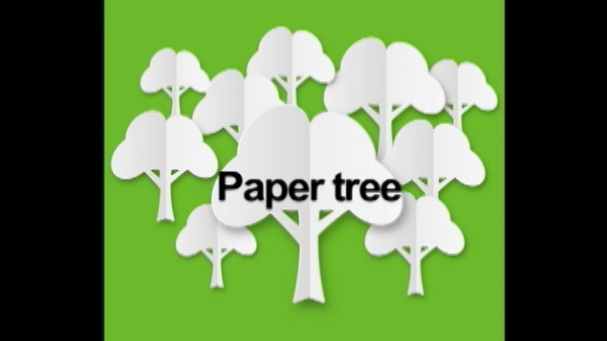
Accompany a movie using paper sounds
You will need large sheets of paper or newspaper for this activity.
- Watch the Paper tree movie – a tree’s journey of growth from seed to manufacture in a paper mill. Ask your child to describe how the soundtrack reflects the two sections of the video: growth from seed to tree in nature; felling and paper mill production processes.
- Watch the Paper sounds movie, to discover how sounds can be made with a sheet of paper. Notice how the sounds in the second section match the beat of the music.
- Play the Paper tree movie again. Give your child a large sheet of paper to improvise their own sounds, representing the visual images as they change.
What next?
- Encourage your child to experiment with paper to make different rhythms and sound effects. Find other recycling materials in the home to use as well: empty plastic bottles, cardboard tubes, boxes, wrappers.
- Use these junk instruments to make a band so all the family can join in and play. Accompany your own favourite pieces of music or video with paper and junk sounds.
- Ask friends and family to form a family junk band and make a video call to all join together in a mass performance!
The resources for this activity can be found in the Music Express Lesson Bank, Year 4, unit ‘Recycling’, lesson ‘Paper groove’, activity 1.
Year 5 (ages 9-10)
Body-popping skeleton
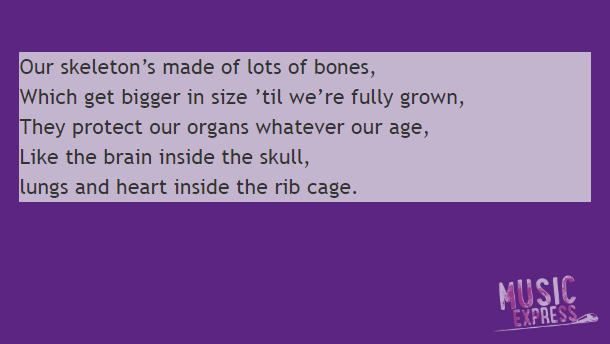
Learn a song with rhythmical body-popping movements
- Watch the Body-popping skeleton movie to listen to the song and ask your child to join in with the echoes in the chorus. Talk about the science in the lyrics of the song, which describe parts and functions of our skeleton.
- Watch again to copy and join in with the movements.
- Look at the Body-popping skeleton lyrics to learn the song and practise singing it with the movements. You might like to build this up over a few days until your child is confident with both aspects.
- Video the whole song with movements in a performance with the backing track.
What next?
- Encourage your child to make up their own rhythmical movements to perform with the song. Share their performance with family and friends via a video call, asking everyone to join in with the echoes and movements.
The resources for this activity can be found in the Music Express Lesson Bank, Year 5, unit ‘Keeping Healthy’, lesson ‘Body-popping skeleton’, activity 2.
Year 6 (ages 10-11)
World unite
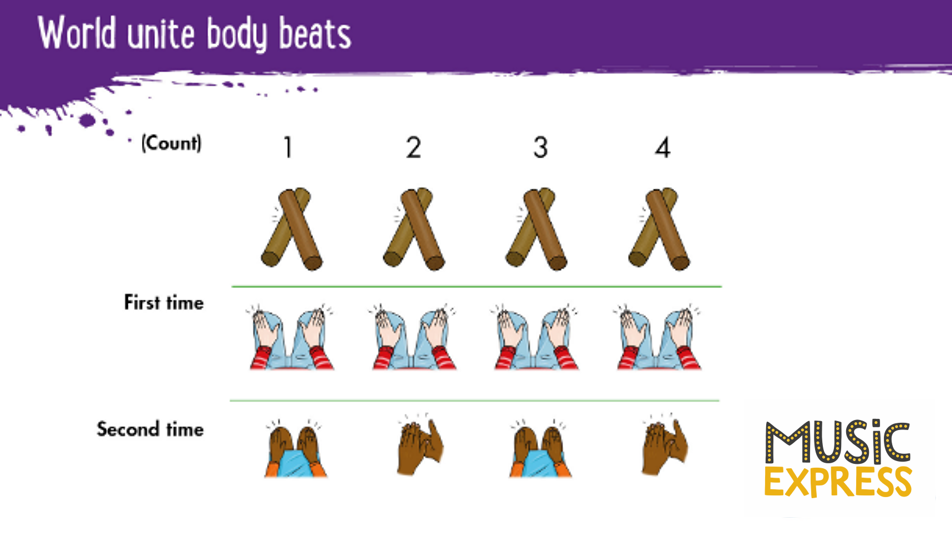
Learn a song and accompany it with a body beat
- Listen to World unite to learn this short, upbeat song. Ask your child to notice the introduction and instrumental interludes between the vocal sections.
- Encourage your child to move to the music as they listen and accompany it with body-percussion sounds on the beat, e.g. tap, stamp, click, pat knees.
- Use real or home-made drums to play an accompaniment for the song, e.g. tap with both hands on a cardboard box or a table top. Play the beat while singing the verses, then improvise your own rhythms during the instrumental sections.
- Perform the whole song with your drum accompaniment.
What next?
- Create a dance sequence to perform with the song, moving to the steady beat in the instrumental sections.
- If your child plays a tuned instrument like a recorder, keyboard, guitar or violin, they can create melodic riff patterns of eight notes. Listen to the examples which can be clearly heard played to the steady beat in the instrumental interludes. Use only the notes of the pentatonic (5-note) scale, which can be played in any order to create your own riffs: D E G A B
- Practise, then video a performance to share with friends and family.
The resources for this activity can be found in the Music Express Lesson Bank, Year 6, unit ‘World unite’, lesson ‘World unite’, activity 1.
This blog is written by Helen MacGregor, an award-winning music education author with many years’ experience of teaching music in Primary schools, teacher-training and leading children’s music festivals and holiday courses. She is passionate about giving all children the opportunity to experience and enjoy making music. Her publications include the ‘Listening to Music’ series (Primary Music Magazine Best Listening Resource 2019) and she is co-author of the Music Express scheme of work and three of Roald Dahl’s Revolting Rhyme musicals.
Collins Music are offering free access to Music Express while schools are closed to support teachers, parents and pupils. Music Express is a digital resource for teaching primary music that’s easy to use and accessible to non-musicians as well as music specialists. Set engaging music lessons from home with a wealth of songs, games and activities with simple, step-by-step instructions. Free access for parents can be obtained by visiting our learn at home page and using the login details provided. To set up free access for your school, or if you are an independent music educator, visit our teacher support page.
[mks_button size=”large” title=”Find out more about Music Express” style=”rounded” url=”https://collins.co.uk/pages/primary-music-music-express” target=”_blank” bg_color=”#eabb36″ txt_color=”#FFFFFF” icon=”” icon_type=”” nofollow=”0″]
